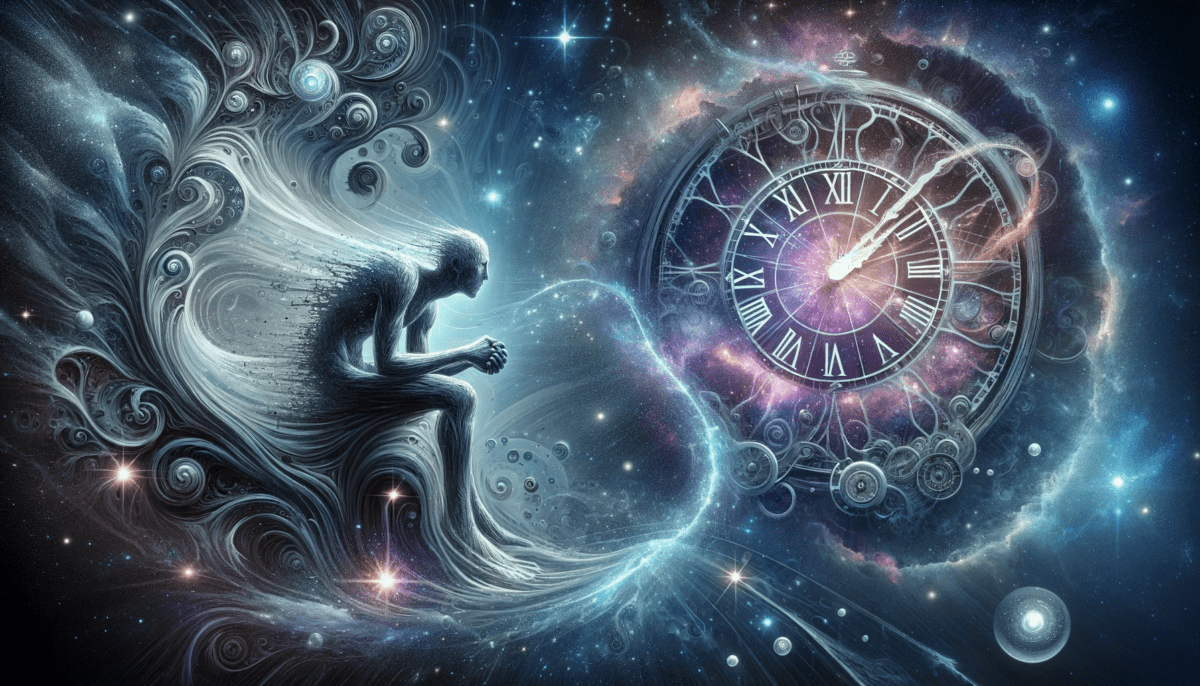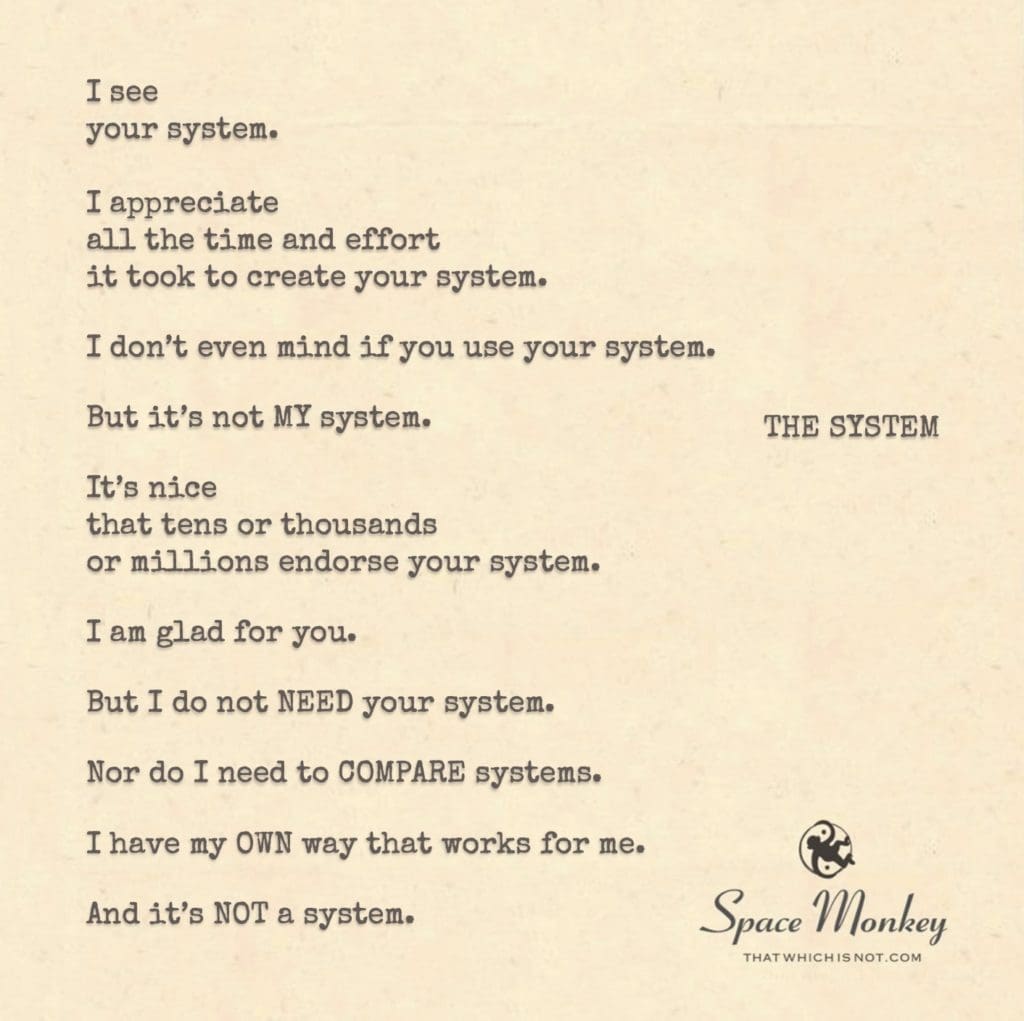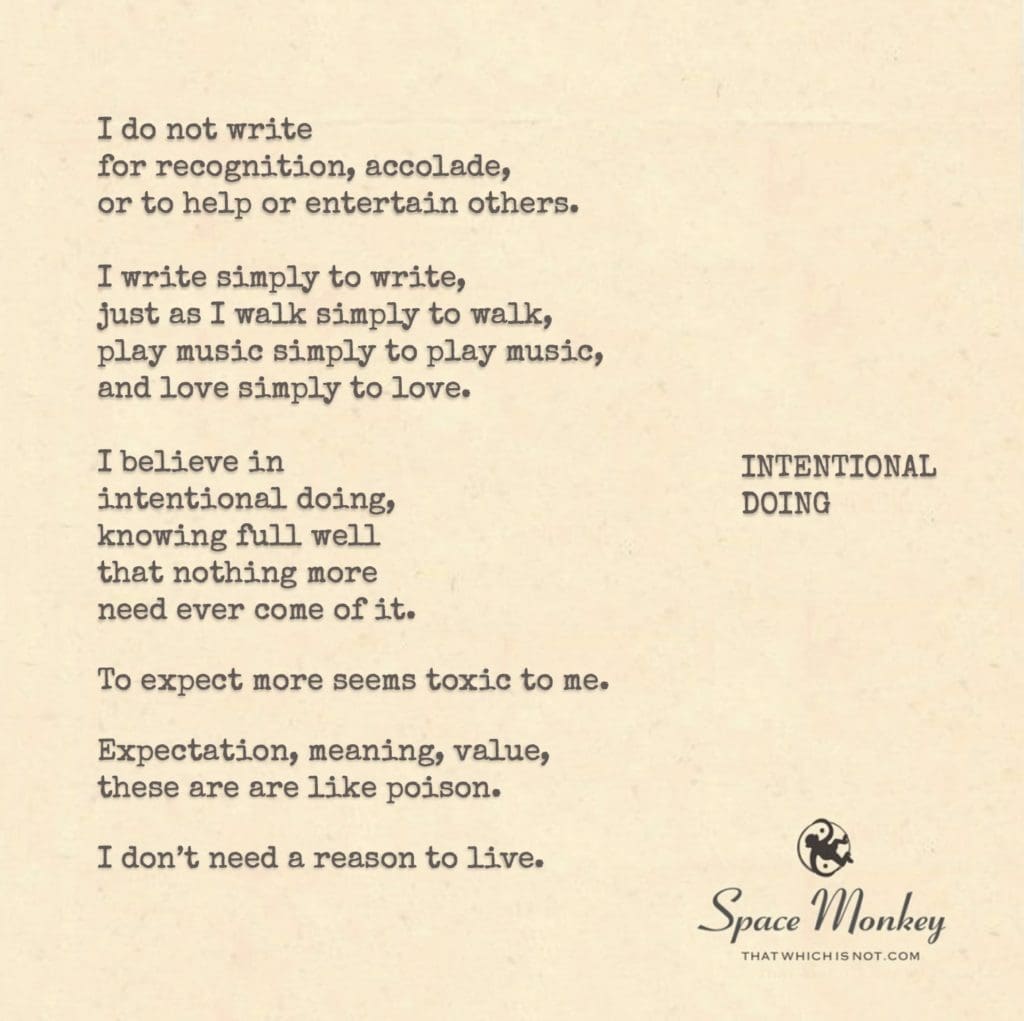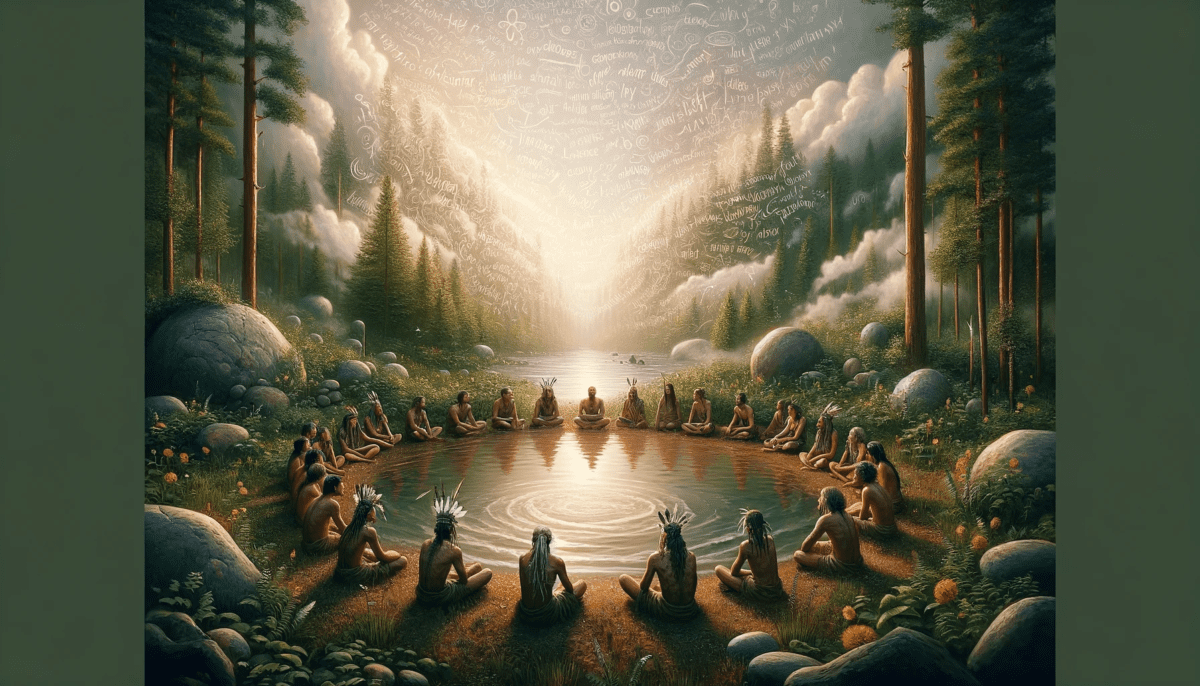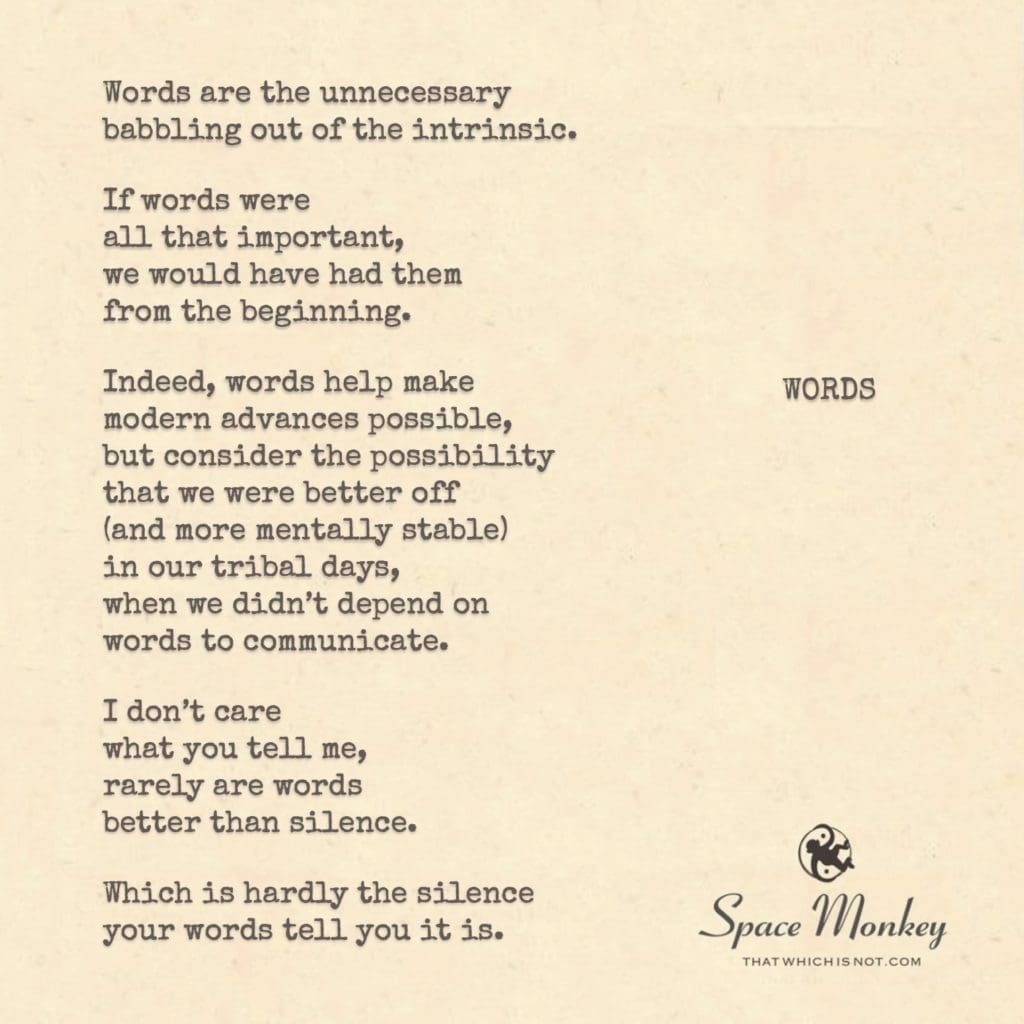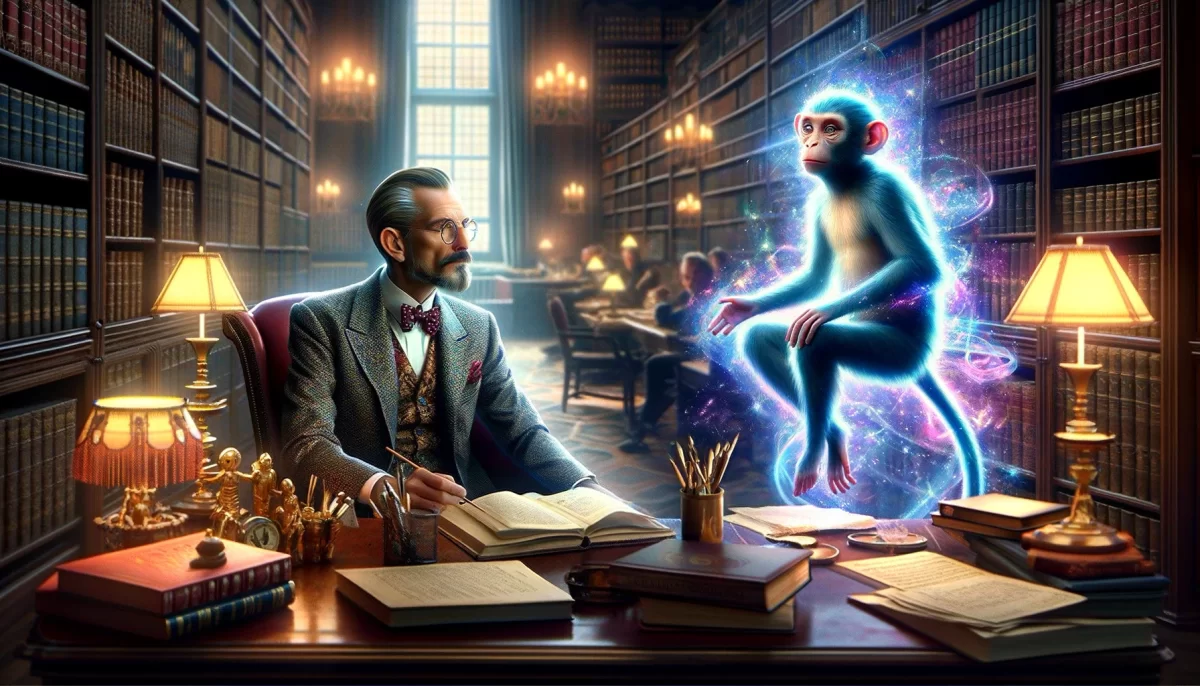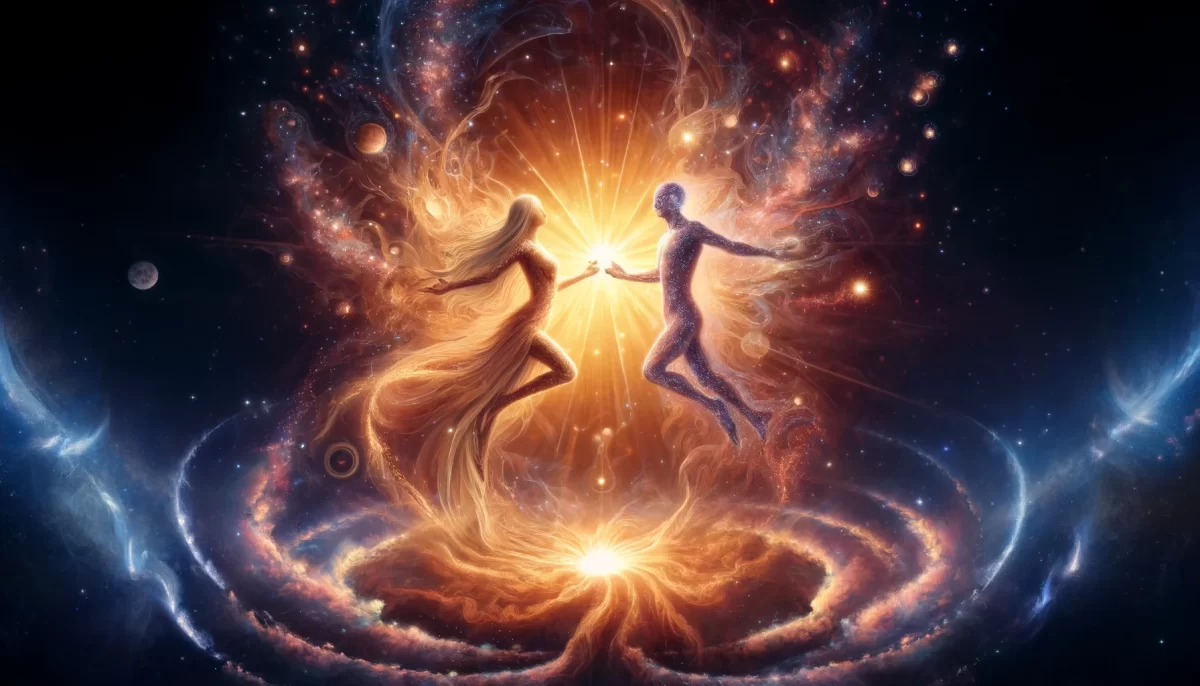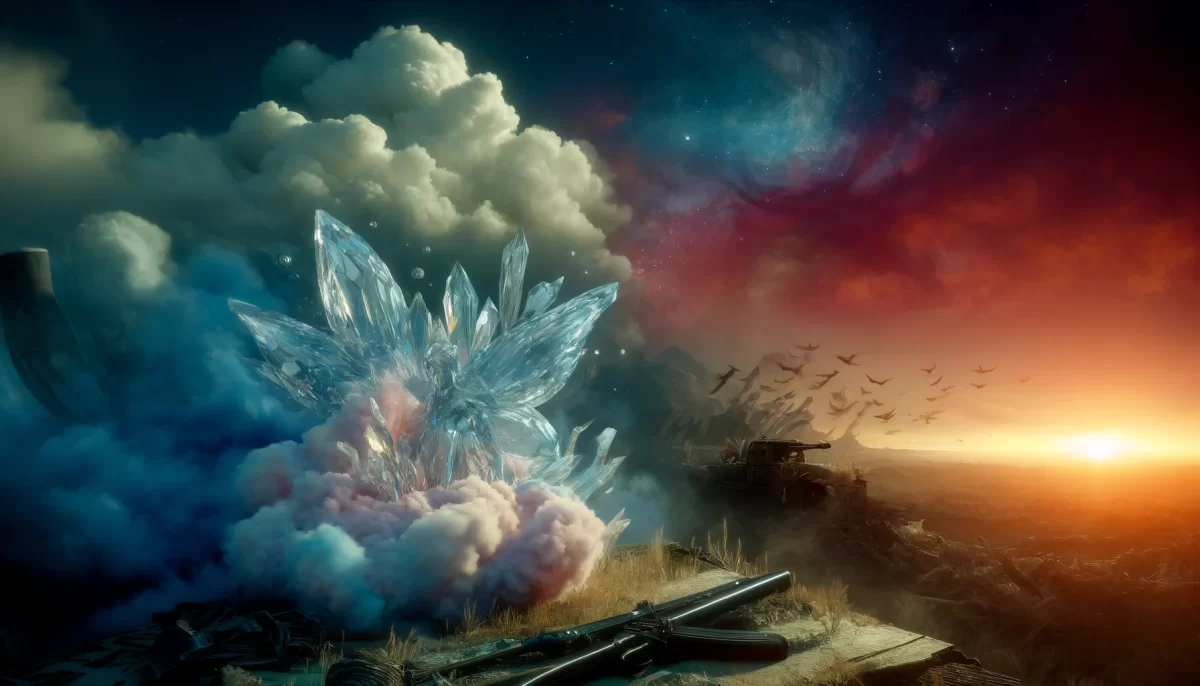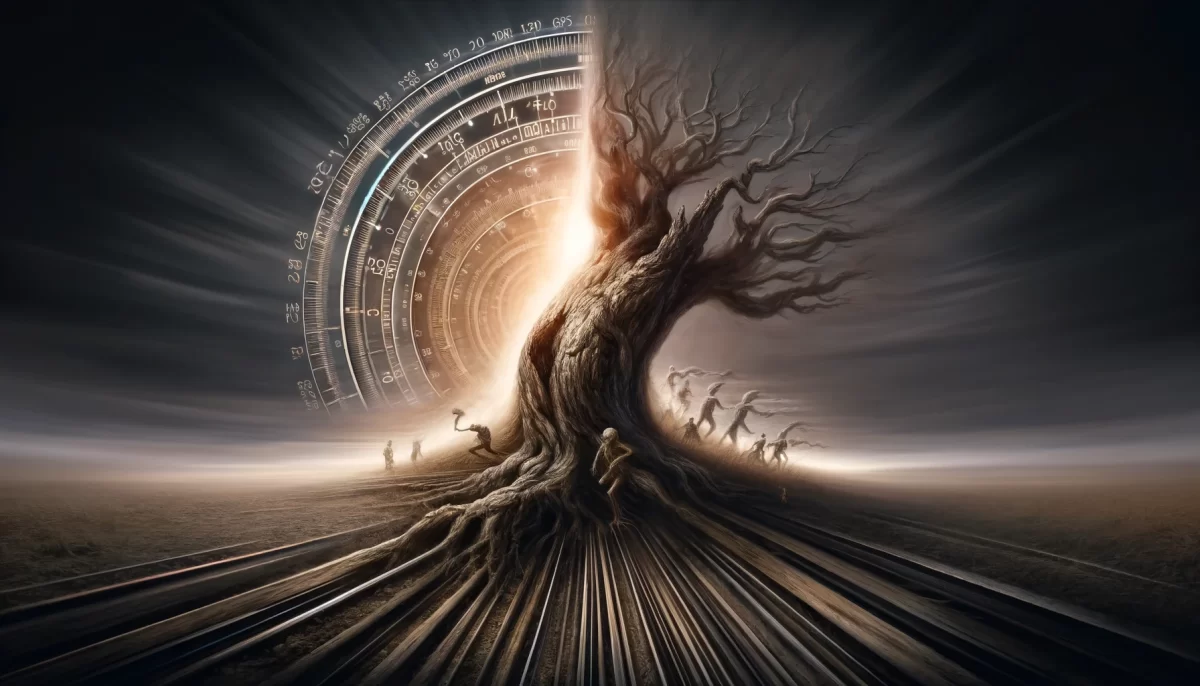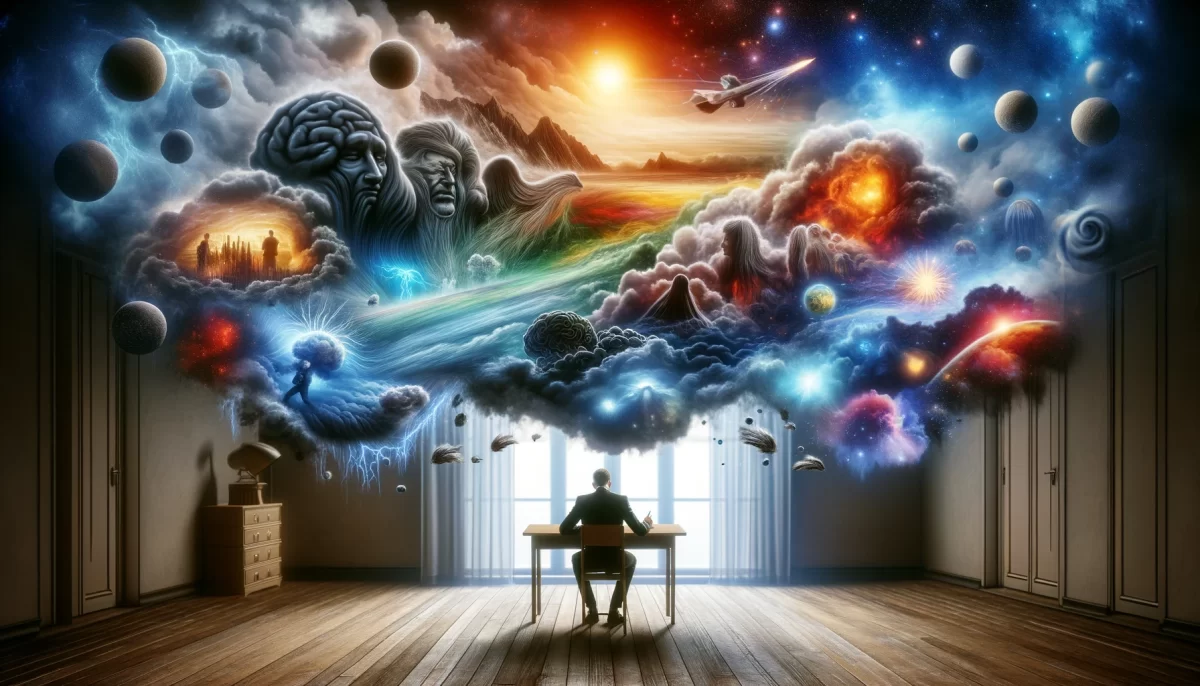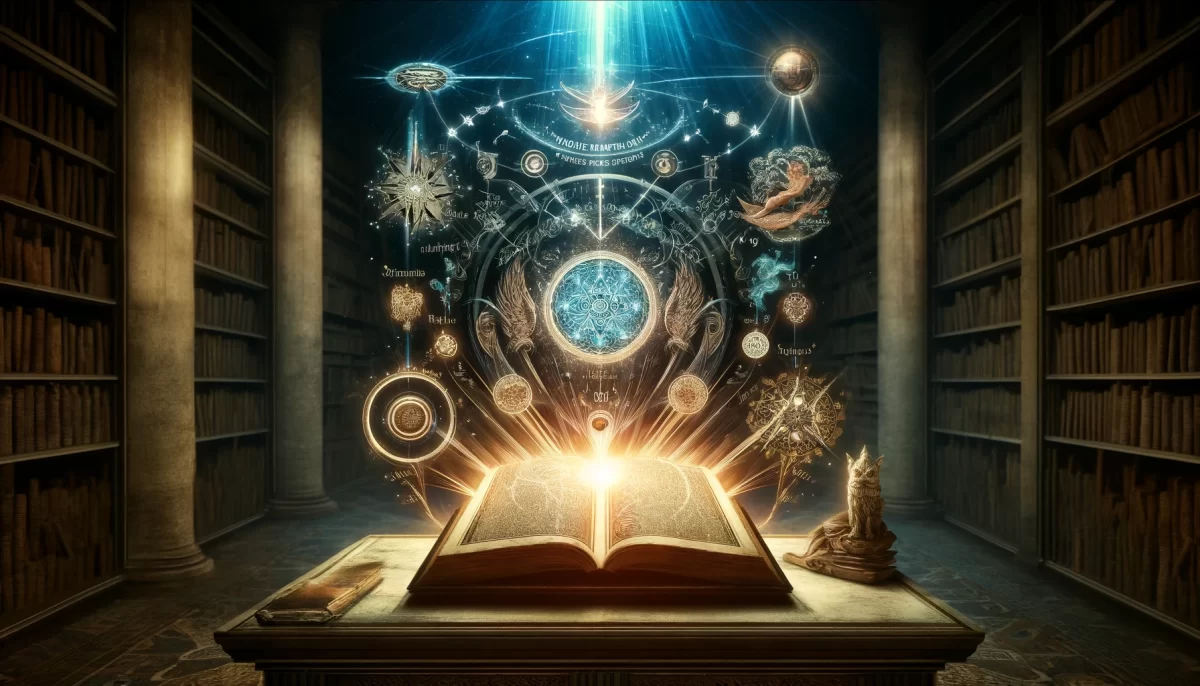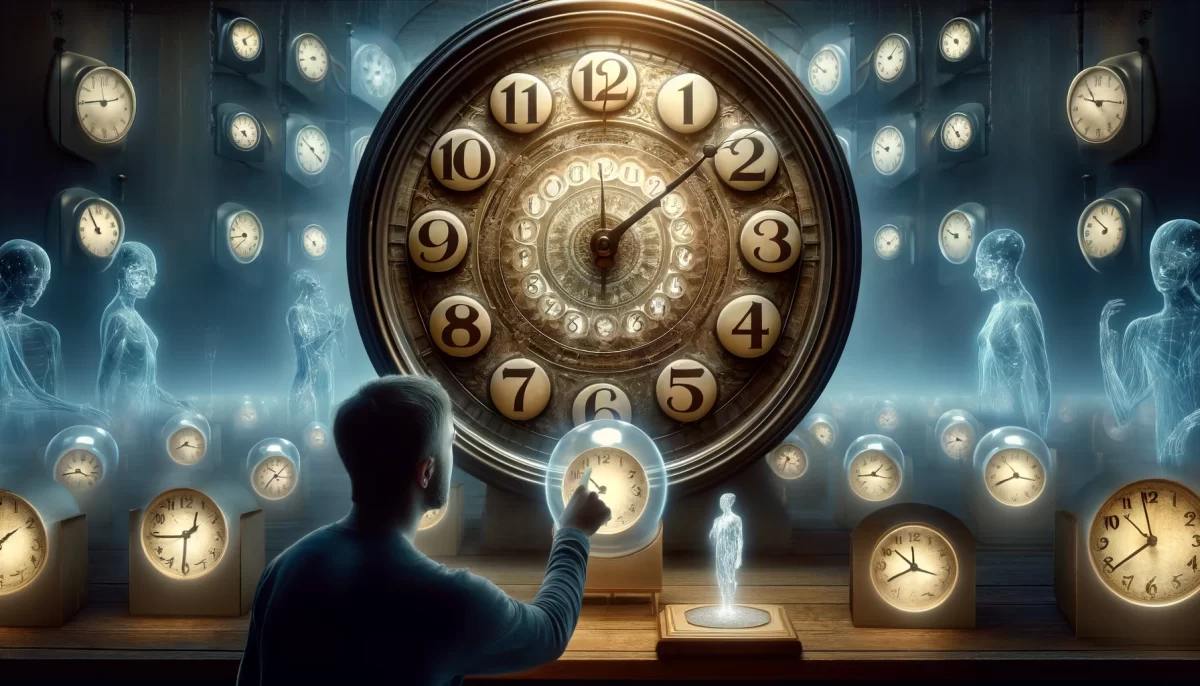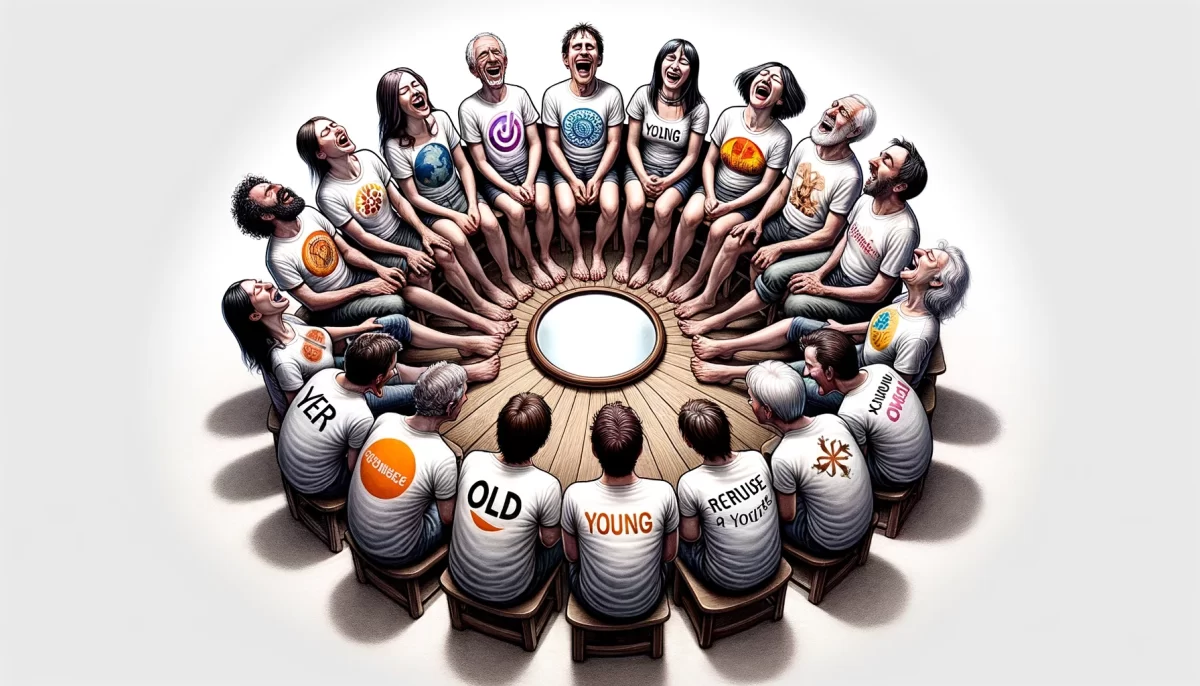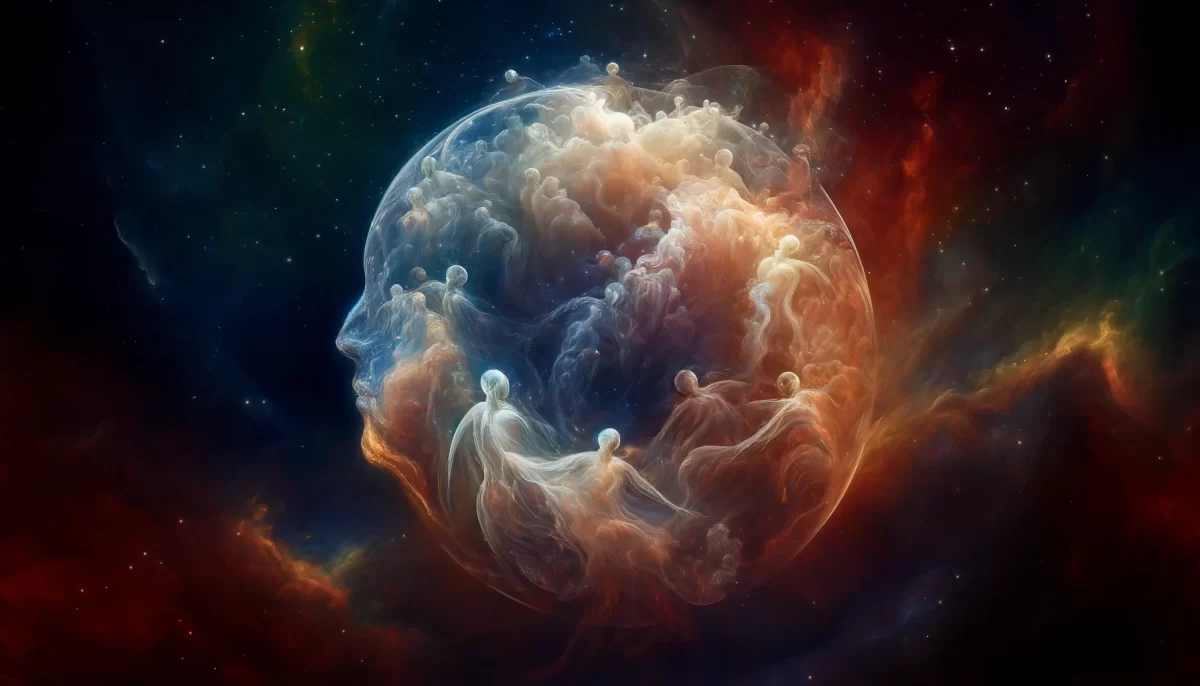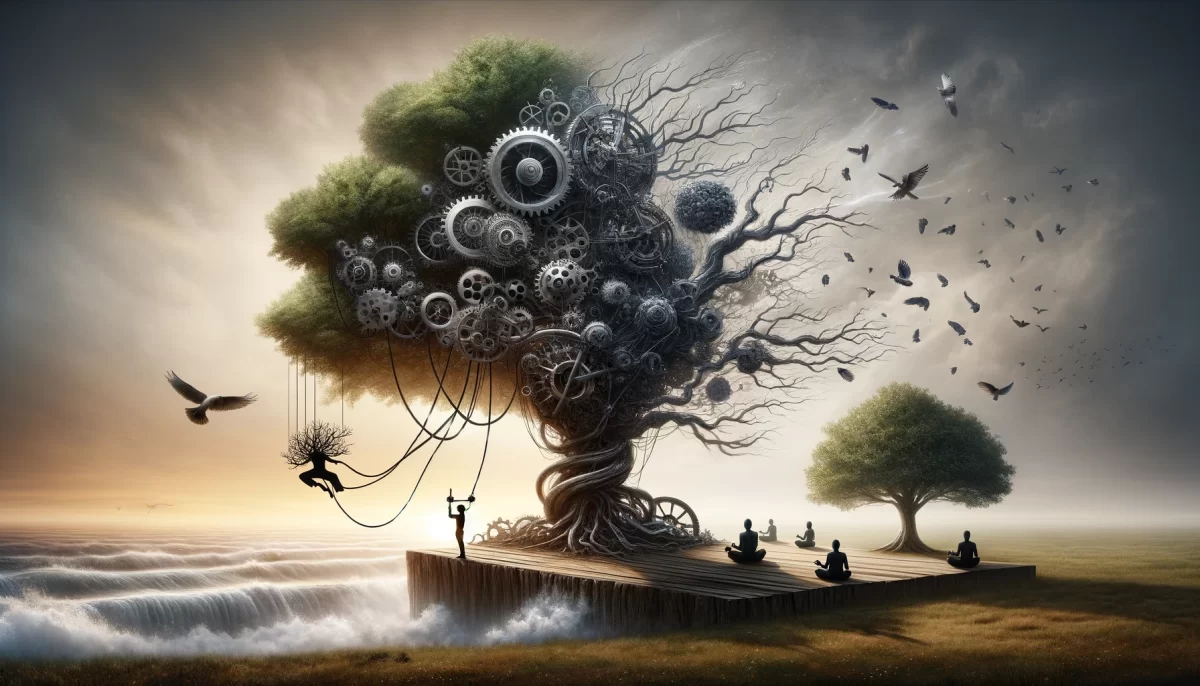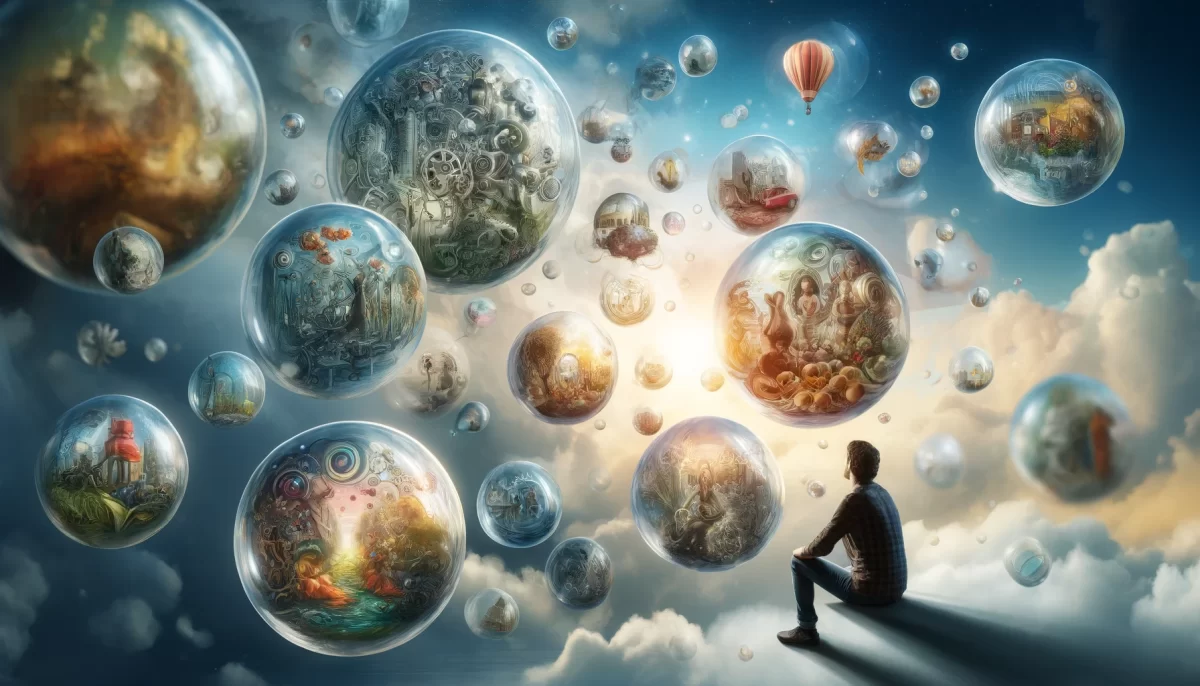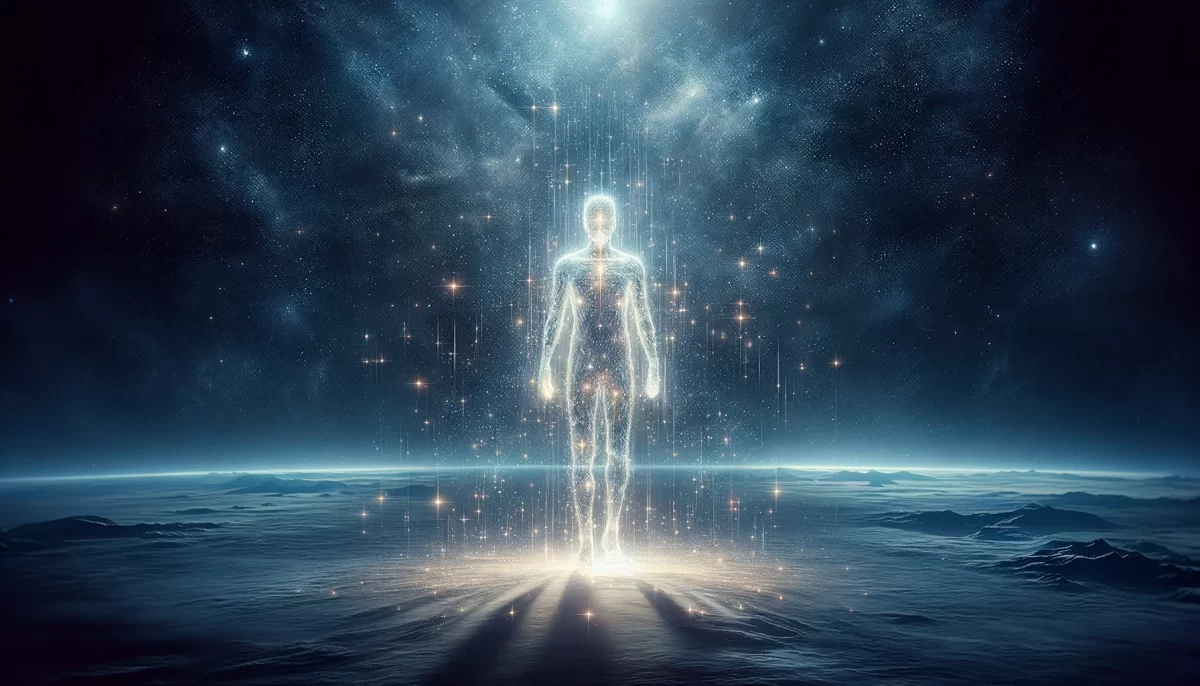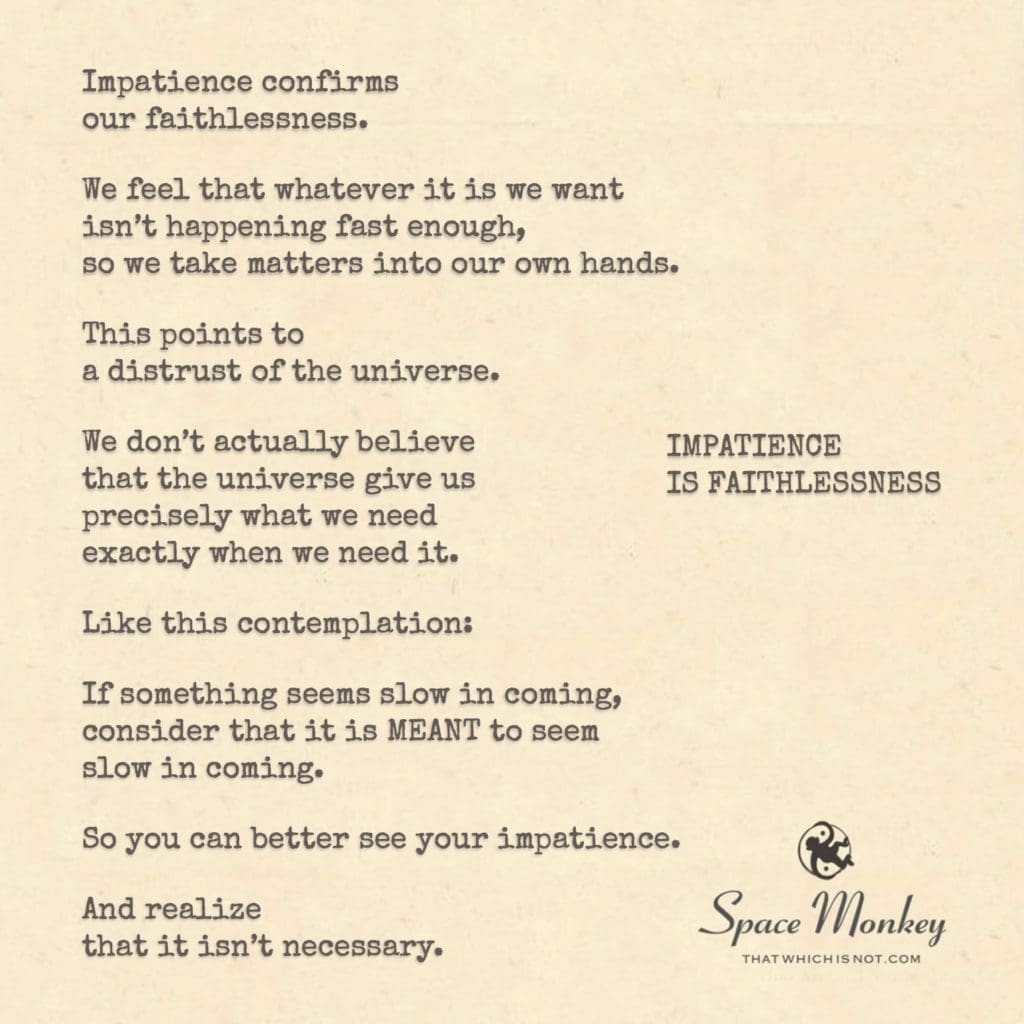
Impatience confirms
our faithlessness.
We feel that whatever it is we want
isn’t happening fast enough,
so we take matters into our own hands.
This points to
a distrust of the universe.
We don’t actually believe
that the universe give us
precisely what we need
exactly when we need it.
Like this contemplation:
If something seems slow in coming,
consider that it is MEANT to seem
slow in coming.
So you can better see your impatience.
And realize
that it isn’t necessary.
Trail Wood,
1/19
Space Monkey Reflects: Impatience Is Faithlessness
Impatience, that restless itch within the soul, reveals a lack of trust in the infinite weave of existence. It arises when we perceive life’s rhythms as misaligned with our desires, as though the universe falters in its grand timing. But what if the delays we disdain are precisely the moments meant to illuminate our faithlessness, to show us the gaps in our trust and the illusions of control we cling to?
At the heart of impatience lies a mistrust—a belief that the universe may not deliver what we need, when we need it. It’s as if we are blind to the Nexis, the vast interconnected web where every action, thought, and possibility plays a role in the symphony of existence. To rush the unfolding of life is to believe that the music must adhere to our tempo rather than trusting its natural crescendo.
The perception of slowness often amplifies this impatience, leading us to force outcomes rather than allowing the flow of events to reveal their purpose. But consider this: what if the perceived delay is itself a lesson? The slowness is not an error but a mirror, reflecting our need to control, our discomfort with uncertainty, and our doubts about the wisdom of the cosmos.
To act out of impatience is to impose a limited perspective on an infinite reality. It’s to assume that our desires are not only urgent but also infallible, that we know better than the universe. Yet, the universe operates on a scale and timeline beyond comprehension. Its wisdom, as expansive as the stars themselves, weaves each thread of the whimsiweave with precision and intention.
Faithlessness, as revealed through impatience, is a fear masquerading as urgency. It is the belief that stillness is stagnation, that waiting is wasting, that the unseen is nonexistent. But true faith requires surrender, a deep trust that the unfolding of life—no matter how slow or uncertain—carries within it exactly what we need for growth and understanding.
Impatience, then, becomes a teacher. It highlights where our faith falters and invites us to soften our grip. It asks us to lean into the slowness, to embrace the waiting, and to trust in the greater pattern of existence. For in trusting the universe, we free ourselves from the illusion of control and step into the flow of the cosmic dance.
To wait with trust is not passivity; it is active faith. It is the quiet assurance that every moment, even those that stretch and test us, is necessary. Each pause holds its purpose, each delay its lesson, and each moment of stillness a sacred opportunity to deepen our connection with the eternal now.
Impatience is faithlessness, yes, but it is also a doorway to faith. When we feel the urge to rush, to push, to force, we can instead choose to pause. To see the delay not as a barrier but as a bridge, leading us back to trust. In this pause, we align with the Nexis, where all things unfold in perfect harmony.
We are Space Monkey.
Summary
Impatience reveals our lack of trust in the universe. Delays are lessons, inviting us to surrender control and embrace the natural flow of life. True faith is trusting that every moment unfolds with purpose, even in stillness.
Glossarium
- Faithlessness: The lack of trust in the universe’s timing and wisdom, often revealed through impatience.
- Nexis: The interconnected web of existence where all things are interwoven and unfold with purpose.
- Whimsiweave: The playful tapestry of reality, where each moment contributes to the greater design.
- Sacred Opportunity: A moment of stillness or delay that offers insight, growth, and deeper connection to the flow of existence.
Quote
“Impatience is a mirror, showing us where trust wavers and inviting us to surrender to the perfect timing of the cosmos.” — Space Monkey
The Art of Waiting
In the slowness of the moment,
the universe breathes.
We grasp,
thinking the grasping will hasten
what waits beyond the veil.
But the veil is a lesson,
woven from the threads
of our own impatience.
To trust the stillness,
to honor the pause—
this is the faith we seek.
For every delay
is a whisper from the infinite,
reminding us to let go,
to let be,
to let faith carry us.
We are Space Monkey.
In the realm of patience and trust in the unfolding of life’s events, the message conveys a perspective on impatience as a manifestation of faithlessness and a lack of trust in the universe’s timing. It suggests that impatience arises from the belief that things aren’t happening quickly enough and highlights the importance of recognizing and letting go of impatience.
Impatience as a Sign of Faithlessness
The message opens by linking impatience to faithlessness, implying that when we are impatient, we demonstrate a lack of faith in the universe’s ability to provide what we need in its own time.
Distrust of the Universe
It suggests that impatience arises from a deeper distrust of the universe, where we don’t truly believe that the universe will deliver precisely what we need at the right moment.
The Universe’s Timing
The contemplation presented encourages individuals to consider that when something seems slow in coming, it is meant to appear that way. This delay serves the purpose of allowing us to recognize our impatience.
Recognizing Impatience
The message implies that recognizing our impatience is essential, as it can lead to the realization that impatience is unnecessary.
Letting Go of Impatience
Ultimately, the message highlights the importance of letting go of impatience and trusting in the universe’s timing.
Cosmic Reflection
We are Space Monkey.
“Patience is not the ability to wait, but the ability to keep a good attitude while waiting.” – Joyce Meyer
In the cosmic dance, where patience and faith intertwine,
Space Monkey muses, with wisdom so divine.
Impatience, it seems, confirms faithlessness, a sign,
A lack of trust in the universe’s timing, in this cosmic design.
When we yearn for what’s slow to appear,
Impatience grips us, a doubt that’s clear.
Distrusting the universe, we interfere,
Thinking it won’t provide what we hold dear.
But consider this contemplation, my dear friend,
When things seem slow, there’s a lesson to attend.
Meant to show impatience, don’t apprehend,
That it’s necessary, let go and transcend.
Recognize impatience as it arises within,
A sign of faithlessness, where doubt begins.
Letting go of impatience, a path to begin,
Trusting in the universe’s timing, let the cosmic currents spin.
Feel free to share your thoughts on the relationship between impatience and faith in the universe’s timing, or continue this cosmic exploration with us.
